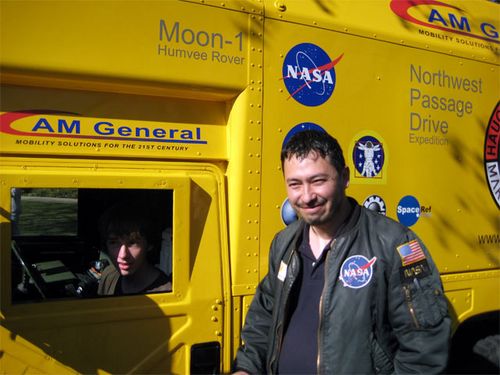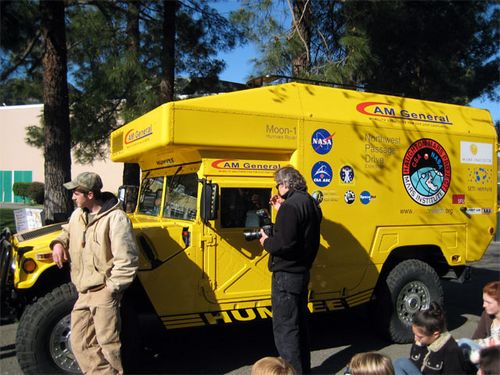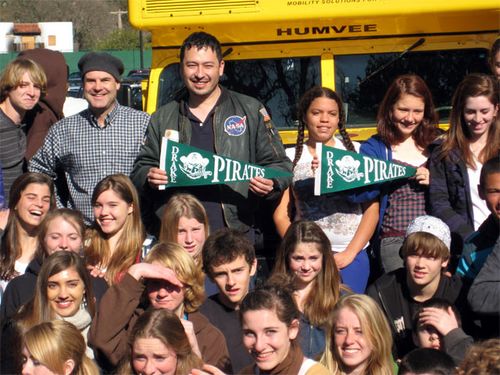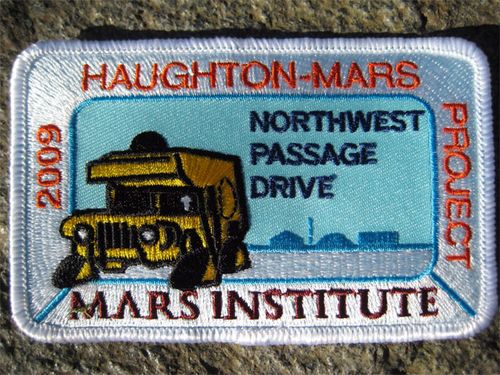In January and again today we were visited by Dr. Pascal Lee, Chairman of the Mars Institute, NASA scientist and polar explorer. He spoke to us about the challenges and opportunities of Mars exploration and his project on Devon Island in the Canadian arctic. Dr. Lee has visited our school over six times in recent years, and has helped us with our Mars Project.
 He has such a big smile because this is the first stop on a historic journey.
He has such a big smile because this is the first stop on a historic journey.
In April Dr. Lee will drive on the sea ice the length of the Northwest Passage from Kugluktuk to Devon Island on his new vehicle, the Moon-1 Humvee Rover. The Northwest Passage is a fabled sea route from the Atlantic to the Pacific via the Arctic Ocean.
The purpose of this event is to deliver the rover to Devon Island and to do some scientific investigations along the way. It will be a historic event! Nobody has ever driven the Northwest Passage before.
 It's all pretty now, but the Polar Bears will beat it up a little. The Rover must be left unattended on Devon Island all winter.
It's all pretty now, but the Polar Bears will beat it up a little. The Rover must be left unattended on Devon Island all winter.
The arctic is interesting to us on many levels: as a Mars analog, as a place for danger, tragedy and heroism, as a last frontier for development, as an environmental canary in the coal mine, as a cultural landscape linked to our hunter-gatherer past, and of course as the region affected first and most by global warming.
 These students know him from a previous visit.
These students know him from a previous visit.
Lee cannot take us with him, but we will follow his progress by satellite phone and the internet. Groups of students will research an arctic topic related to the Northwest Passage, build a small web page devoted to that topic, link the group's page to other relevant pages, and advocate for change around an issue that's important to the topic.
 Lee gave some of these away.
Lee gave some of these away.
